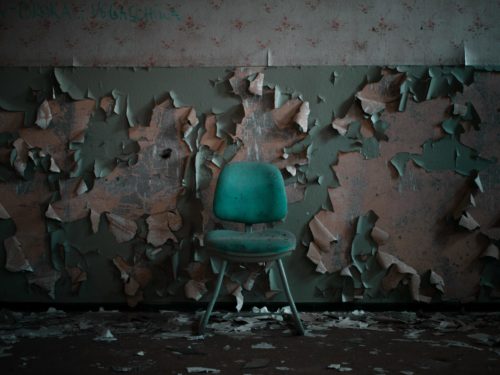Every 107 seconds, an American is sexually assaulted. (source)
It seems in this year alone, sexual assault has been all over the news. From the UVa rape story scandal to the Josh Duggar incest scandal to Bill Cosby’s scandal, it’s simply everywhere.
Sexual assault is becoming a very real, albeit horrific, fact of life.
Should it be that way? Absolutely not. Is there one factor to blame for all of it? Probably not.
You could blame pornography for being a wretched teacher when it comes to women. Truth of it is, women actually don’t exist solely for the pleasure of men. And we actually don’t mean “yes” when we say “no.”
You could blame the epidemic of fatherlessness, because when little boys have little to look up to, they have little to look forward to.
You could blame the Christian Purity culture for reducing men to nothing more than a set of primal impulses that “they can’t control” or conservative Christian culture for making a “man’s world.”
I don’t know who to point a finger at, but I do know who you can’t blame.
You can’t blame the victim.
Repeat after me.
You. Cannot. Blame. The. Victim.
In the wake of the above scandals, and even a scandal that gripped my own church a couple years ago, I have seen schools of thought that made my blood boil.
But what if she was dressed immodestly?
She could have been half-naked. That doesn’t mean you can do what you want with her. It’s not a license for you to have at.
In the church culture, though, the message we can tend to promote is very much a message of victim-shaming. Our teachings on modesty center around the woman’s role in keeping the man pure. The women are the scantily clad. The women are the harlots. The women are the temptresses.
Recommended Read- Not Marked: Finding Hope and Healing After Sexual Abuse by Mary DeMuth
And it’s not Biblical. Not a lick of it.
Two proof texts for you (with emphasis added):
“But I say to you that everyone who looks at a woman with lustful intent has already committed adultery with her in his heart.”
Matthew 5:28
In this passage, all responsibility is put on the man, or the one who looks with lustful intent. There is no qualifier. There is no “but if she’s dressed in a miniskirt, then it’s OK. After all, what’s a guy supposed to do?”
And:
“But each person is tempted when he is lured and enticed by his own desire.”
James 1:14
By his own desire, not by the sexualized culture around him, or by the woman on the street corner. By his own desire. Sexual assault happens because of the suspects, not the victims. But we blame the victims. We blame them with our disbelief, with our quick judgement, with our ignorance, with our silence.
This was a hard post to write. In fact, the first time I tried to write it, there was so much raw hurt and emotion. I had to set it down walk away and start over.
Because I have experienced sexual assault and the crushing weight of not being able to tell anyone afterward. He was the son of an elder in our church. They would not believe me. Even more, they might get mad at me for even making such accusations even though they were true. I would be a persona non grata, one who is not welcome.
I have felt the dread and the shame and the “somehow this must be my fault because everyone else seems to think he’s a nice guy.”
My grandmother thought the world of him. He is the only guy she would let come over to our house and every time he would come into my room, my skin would crawl. One time when I went back to visit my grandparents, he was there at the church- and followed me around. I literally ran.
We were young, so it’s not like I want him locked away. I don’t feel he needs to be registered as a sex offender. I just wish I had felt like I had a voice to be heard. I wish I could have said,
“This is what he did and because he did that, I’m not comfortable with him. I don’t want to be his recess buddy. I don’t want him coming over to my house. I don’t want to be assigned a seat next to him on the bus. I want him out of my life. I want to be safe from him and safe to work through this.”
And that’s what I wish for other women who have experienced sexual assaults.
Our churches need to be places known for healing, hope and redemption.
Sadly, they are not. Sadly, the broken women who worship with us every week carry burdens and baggage so great and so painful, it crushes them. How can we fix this? How can we be ministers of grace to women (and men!) who have endured trauma?
- Talk About it. If it’s happening out there in “the world,” it’s happening in your church. It makes no difference what “it” is. If it is something that exists in the world, then you should just assume that it exists in your church.
- Create Safe Places. This is going to look different everywhere, but what you do not want is a court of public opinion. If your youth pastor goes rogue and sleeps with one of the students, is there a place where he/she can go to confide in someone without fearing retribution? Some place where he/she can go in confidence and feel safe, secure, and protected. A counseling team, a forum, a hotline. Something.
- Protect Them. Every church should have a strategy for how to handle allegations of sexual assault. See #1. Part of that strategy needs to be a way to protect the victim from the perpetrator while the claims are being investigated. This is not physical protection per se, but emotional protection. Sticking the two of them in a room together so they can hash it out and you can “get to the bottom of this” is not protection. Protect confidence and let the victim know you continue to be there for them.
- Encourage Involvement of Authority. Unless you are a cop, you are not a cop. Unless you are a social worker, you are not a social worker. Unless you are a judge, you are not a judge. Sexual assault is a crime, and just like you would report a robbery, you should encourage reporting of a sexual assault. In some cases, you may be legally obligated to do so. Do not, under any circumstances, handle it “in house.”
- Protect Others. Yes, wrongful accusations exist (and I’m going to tackle that next post), so this does have to be treated carefully. A natural response is to remove the suspect from all sorts of contact with anybody, but that may not be best. You not only want to protect the victim and potential victims, but also the suspect and his or her family. At the very least, limit contact between the suspect and the victim, bring in extra eyes for accountability, and set guidelines in place to prevent further incidents with other victims. If authorities are involved, follow their lead.
- Follow Through. Follow through with an investigation, with actions. Follow through by promoting counseling for the victim (and the perpetrator, though, again, not together). What happened may not seem like a big deal, but studies show that victims of sexual assault are more likely to do drugs, struggle with depression, or even commit suicide. (source)
Victims have to be given a chance to speak.
They have to have a voice, a way to share that is met with hope, healing, and grace.
If you are a victim of sexual assault, I encourage you to talk about it with someone. Find somebody. If it is recent/ongoing, call the police. If it is something in your past, then find a counselor or call a hotline like the National Sexual Assault Hotline: 1.800.656.HOPE.
Also, I want you to hear this from me. I will not claim to understand what you have gone through. We each have our own stories. But I do want you to know this: you are not broken. You are not unworthy. You are not unloved. And most of all, this was not your fault.




